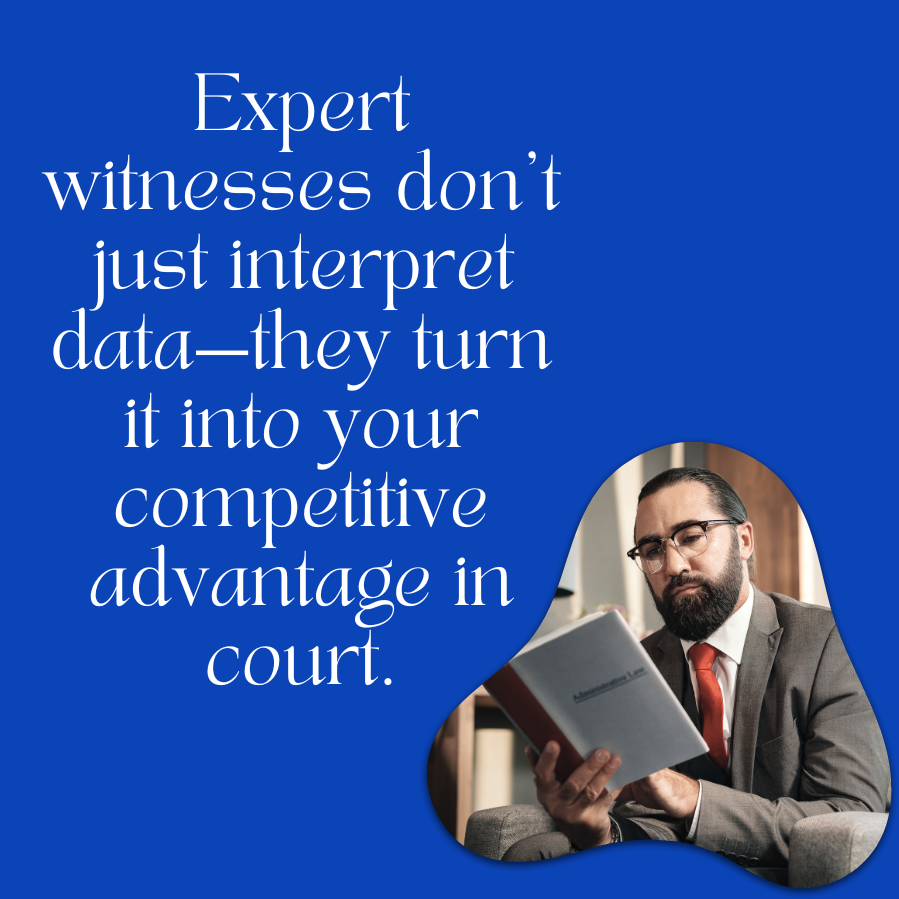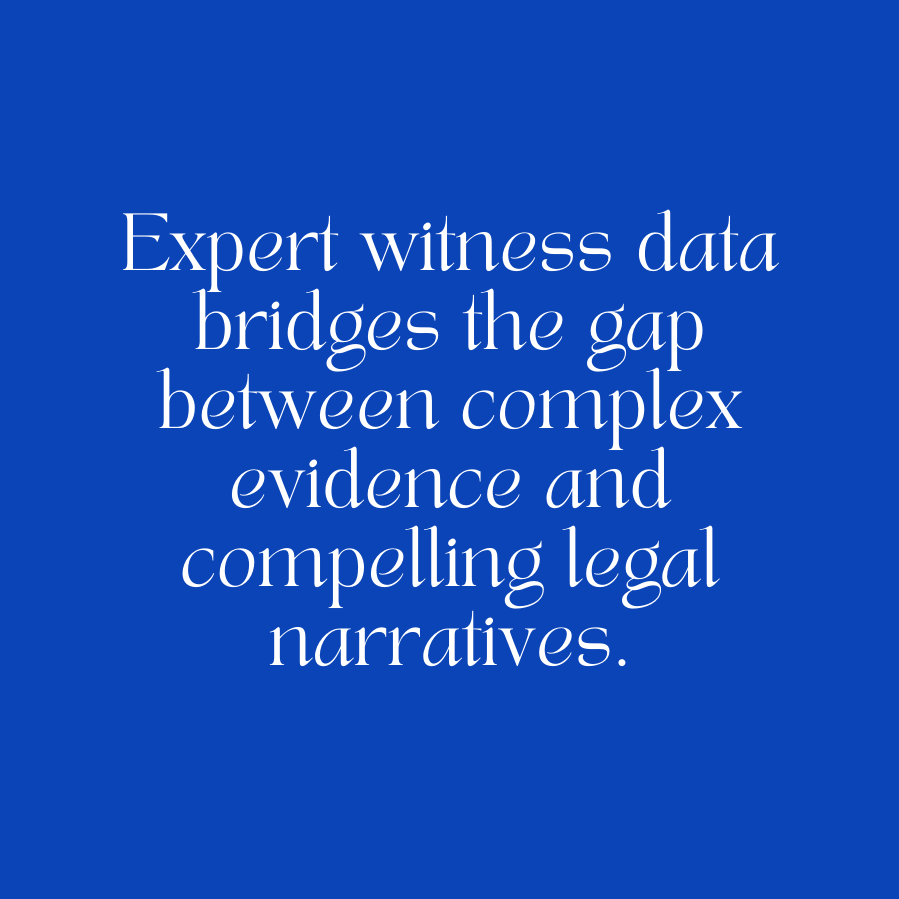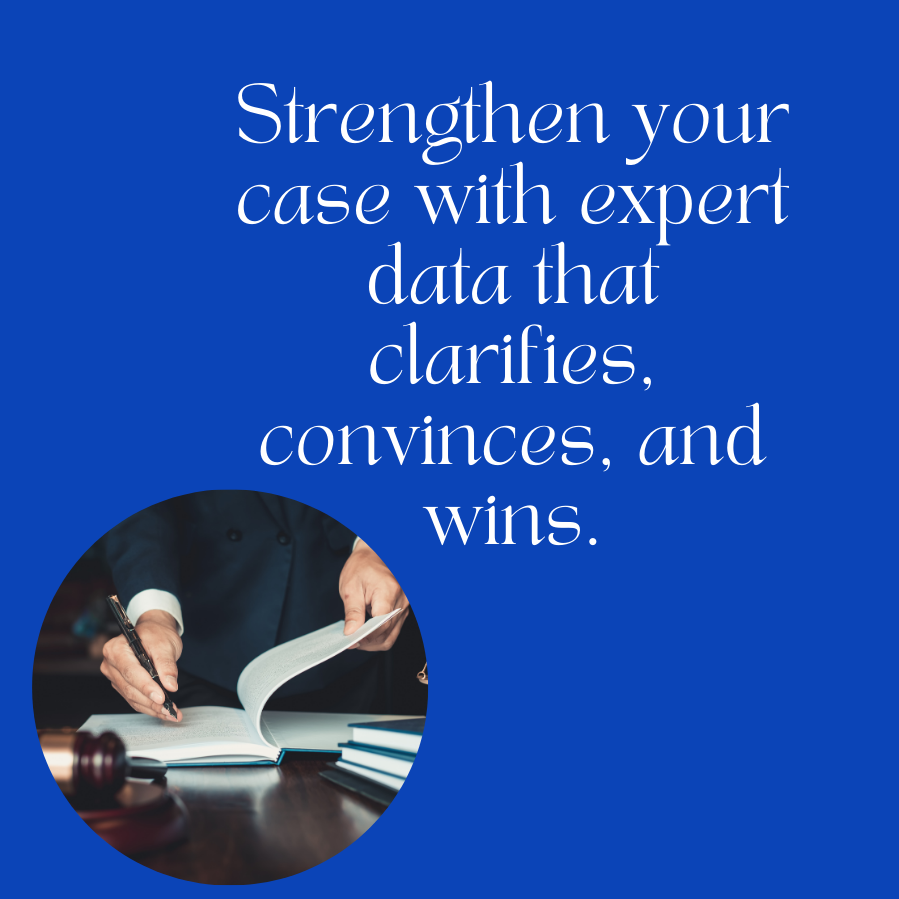The Power of Expert Witness Data in Your Legal Strategy
Imagine the weight of a case resting on your ability to craft an unshakable argument, while the opposing side is poised to dismantle every detail. In these high-stakes moments, expert witness data becomes your secret weapon, turning complex technical issues into persuasive narratives that captivate judges and juries.
As an attorney, you know that every detail matters, from the qualifications of the expert to the credibility of their analysis. This article is here to guide you through how to leverage expert witness data effectively, helping you not only strengthen your legal arguments but also enhance your confidence in the courtroom.
Why Expert Witness Data Matters
Expert witness data isn’t just a resource—it’s the backbone of many successful legal strategies. From intellectual property disputes to financial litigation, expert testimony often forms the crux of an argument.

Without accurate and compelling data to support their testimony, even the most qualified experts can falter under scrutiny.
Imagine a scenario where a damages expert confidently presents their analysis, only to crumble during cross-examination because the data they relied upon wasn’t properly vetted or contextualized. It’s a nightmare no attorney wants to face, yet it’s entirely avoidable with the right preparation.
Making Data Work for You: Lessons from the Courtroom
In one commercial litigation case, an economic damages expert was called to calculate the impact of a contract breach. While their credentials were impeccable, their analysis relied on incomplete datasets and questionable methodologies. The opposing counsel quickly dismantled the testimony, leaving the attorney scrambling to recover.
The takeaway? It’s not just about hiring an expert with the right credentials; it’s about ensuring their data is robust, defensible, and aligned with your legal arguments. This is where a deep understanding of expert witness data becomes invaluable.
Steps to Effectively Leverage Expert Witness Data
1. Know What You Need

Before diving into data analysis, take a step back and assess your case. What story does the data need to tell? Are you demonstrating causation, proving damages, or countering the opposition’s claims? Clear objectives will guide your expert and ensure their analysis is tailored to your argument.
2. Vet Your Expert and Their Data
It’s easy to focus on an expert’s resume, but their methodology matters just as much. Ask questions like:
What sources are they using?
Are their assumptions consistent with industry standards?
How have they handled similar data in past cases?
This diligence can prevent unpleasant surprises during depositions or cross-examinations.
3. Collaborate Early and Often
Your expert isn’t just a witness—they’re a partner in shaping your case strategy. Engage with them early to align on key themes and ensure their analysis supports your broader narrative.
Frequent communication can also surface potential weaknesses before the opposition has a chance to exploit them.
4. Anticipate Challenges
Opposing counsel will likely scrutinize every aspect of your expert’s testimony. Prepare by stress-testing their analysis:
Can they explain their findings in plain language?
Are there alternative interpretations of the data that could weaken their conclusions?
How will they handle aggressive cross-examination?
Preparation here can mean the difference between a convincing testimony and one that raises doubts.
5. Present Data with Clarity

Even the most compelling analysis can fall flat if it’s not presented effectively. Work with your expert to develop visuals, charts, and summaries that simplify complex concepts without losing their nuance. Remember, your goal is to make the data accessible and persuasive to a lay audience.
Common Pitfalls to Avoid
Despite the importance of expert witness data, many attorneys fall into common traps that can undermine their case.
Here’s how to avoid them:
Overloading the Case with Data: More isn’t always better. Focus on the data points that directly support your argument and leave out extraneous details.
Failing to Rehearse Testimony: Your expert may be brilliant, but courtroom dynamics require practice. Make sure they’re comfortable explaining their analysis under pressure.
Ignoring the Human Element: Data may be objective, but its interpretation is inherently human. Ensure your expert can connect with the jury, explaining complex concepts in a way that feels relatable and trustworthy.
The Role of Expert Witness Services
If this all feels overwhelming, you’re not alone. Managing the complexities of expert witness data requires time, expertise, and resources—things many attorneys are already stretched thin on. This is where expert witness services like ExpertConnect Litigation Support can make all the difference.
From helping you find the right expert to ensuring their data aligns with your case strategy, these services streamline the process, saving you time and reducing the risk of costly missteps.
Their screened experts are not only leaders in their fields but also experienced in translating complex data into courtroom-ready testimony.
Conclusion: Building Confidence Through Preparation
At the end of the day, the power of expert witness data lies in its ability to make your case stronger, more credible, and more compelling. By taking the time to understand, screen, and present this data effectively, you’re not just preparing for litigation—you’re positioning yourself and your client for success.
If you’re looking to elevate your approach to expert witness data, consider partnering with a service like ExpertConnect Litigation Support. With their resources and expertise, you can focus on what you do best: delivering exceptional representation for your clients. Visit their website today to learn more and explore their network of pre-screened experts to be sure of your expert witness data.